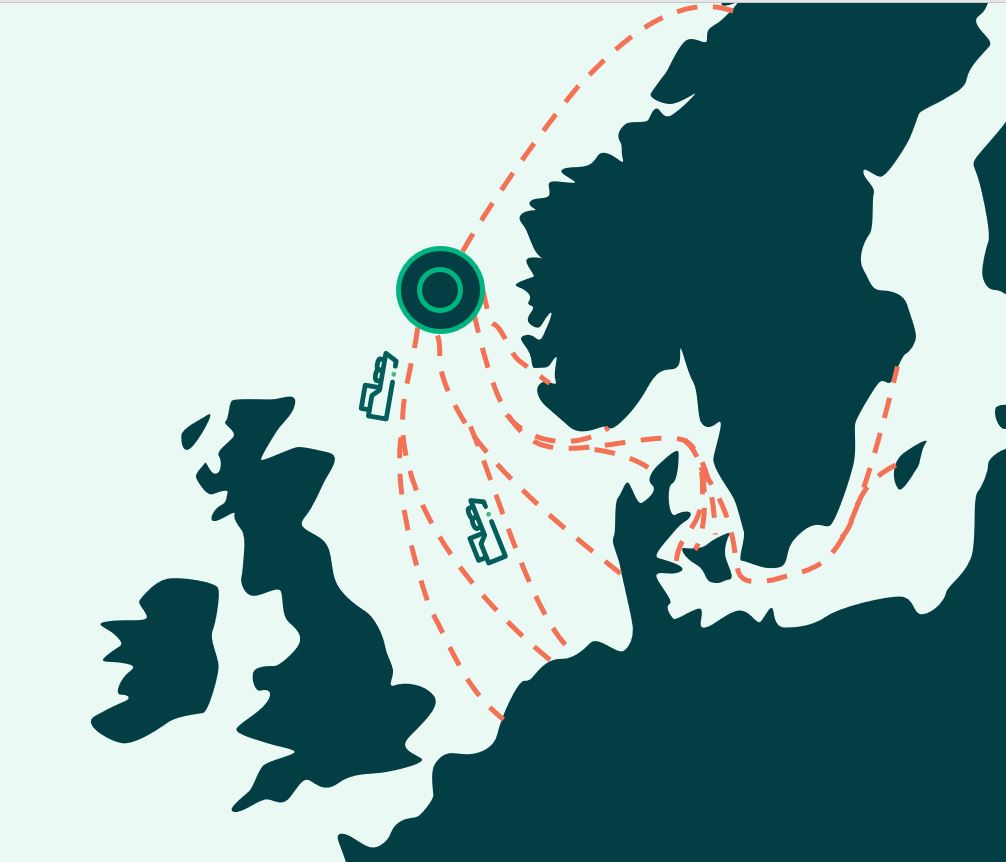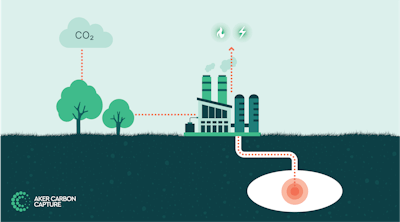Bilateral agreements between Norway, Belgium, Denmark, the Netherlands and Sweden will enable large-scale CO2 storage in Norway
These Memorandums of Understanding (MoUs) were signed on 15 April at the EU’s informal meeting of Energy ministers, where also Norway was invited to.
“Norway has great potential to store CO2 and I am pleased that other countries will store CO2 in Norwegian storage sites. The capacity is enormous. The climate challenge transcends borders, and it is crucial that we put in place solutions for transport of CO2 across national borders. This is an important day for the climate, for our industries and for the first full-scale European CCS project Longship,” says Norway’s Minister of Energy Terje Aasland.
Norway, with its geographical edge and three decades of offshore CO2 storage experience, have been working for years to ensure that bilateral agreements and cooperation with other North Sea countries are in place to enable cross-border transport and storage of CO2.
How North Sea countries are working to accelerate widespread deployment of CO2 infrastructure
So far, 2024 has been categorized by strong policy development and important industrial milestones with an increasing emphasis on fast-tracking transport and storage of CO2 in the North Sea. Projects in European countries enabled by funding mechanisms such as the SDE++ in the Netherlands, the two stage CCS funding tenders in Denmark, upcoming Reverse Auctions for bio-CCS in Sweden, and EU Innovation Funded projects in Belgium all have one thing in common: ensuring effective transport and storage of CO2.
From a project development perspective, 2030 climate obligations are rapidly approaching, where innovative standardized and modularized carbon capture plants, such as Aker Carbon Capture’s Just Catch™ design significantly shortens project timelines but emphasize the need to coincide with corresponding development on CO2 infrastructure.
North Sea countries are now seeking to enhance this deployment through bilateral agreements, with today’s announcement spearheaded by Norway. These agreements can streamline cross-border CO2 transport, ensuring that the captured CO2 can be securely and efficiently transported to storage sites, irrespective of geographic boundaries, but part of a large European network for cross-border transportation network.
These agreements can de-risk projects since they address the London Protocol, an international treaty whereby Article 6 and the 2009 amendment in particular involve transboundary export of CO2 for sub-seabed geological storage. This comes in a timely manner as the European Commission recently published its first Projects of Common Interest and Projects of Mutual Interest in a Delegated Regulation following a scrutiny period by EU co-legislators, which features 14 Priority Thematic Cross-border carbon dioxide network projects.
Bilateral agreements also facilitate the sharing of best practices and technologies, promoting international cooperation and knowledge exchange. This is essential for accelerating the readiness of storage sites, which is a crucial step in increasing the overall capacity and reliability of CCS infrastructure. Moreover, such agreements can help in harmonizing regulations and standards, which is necessary for the safe and effective implementation of CCS projects on an international scale.




